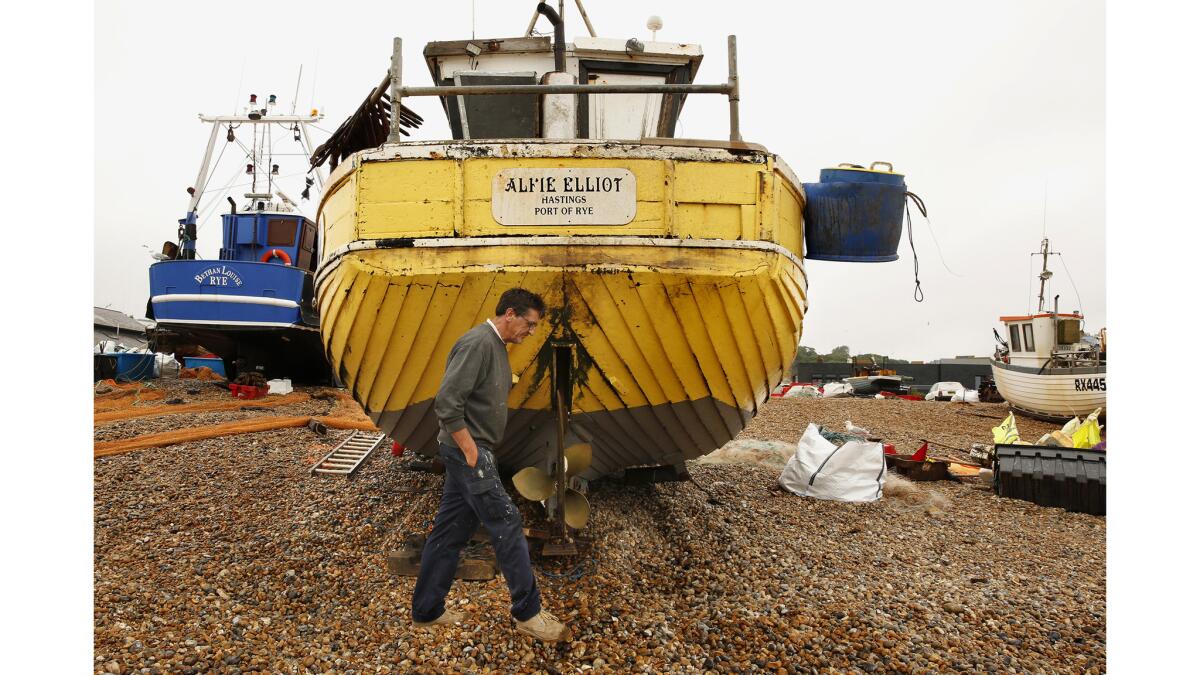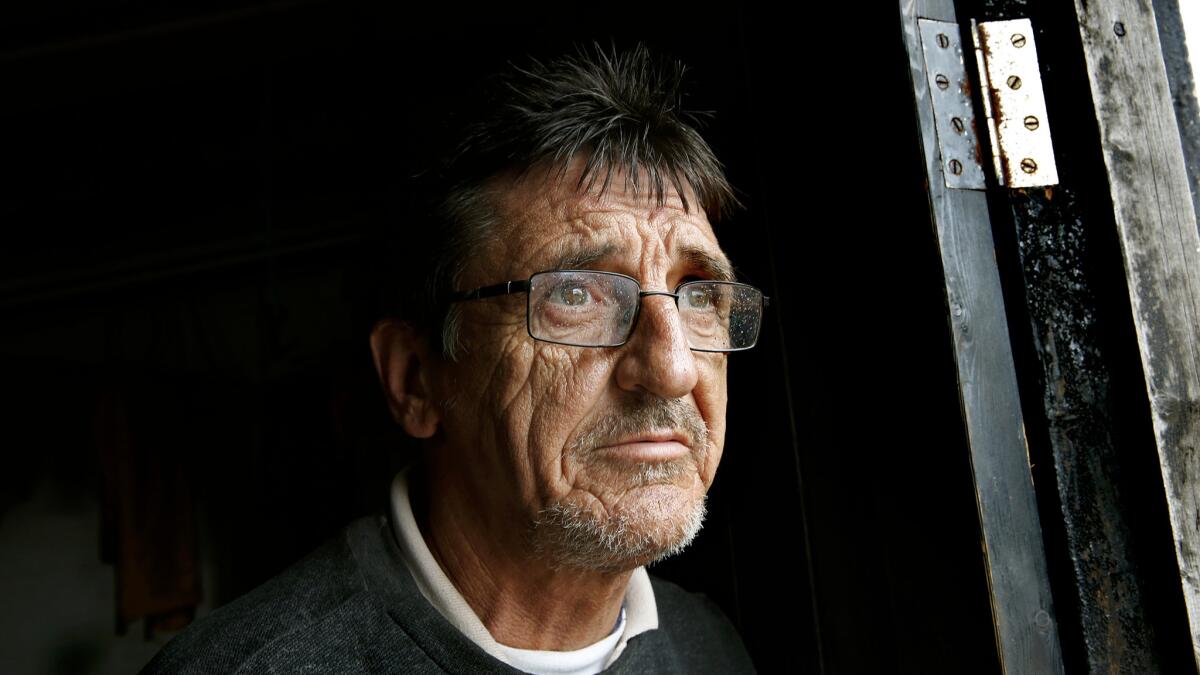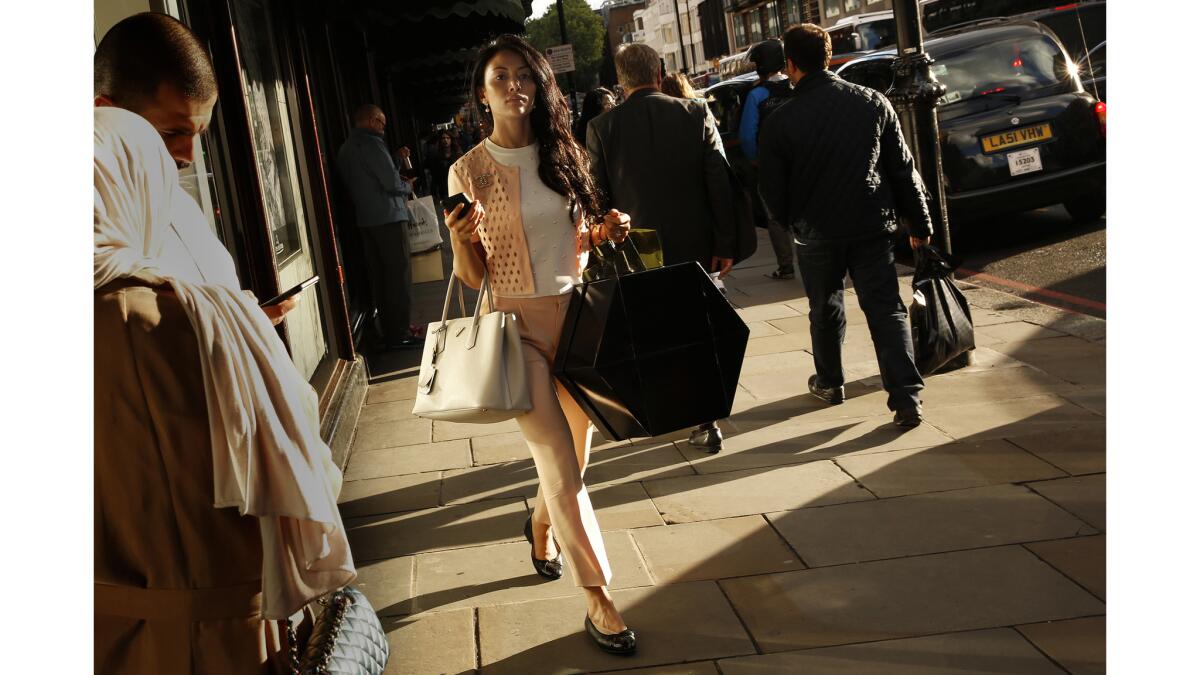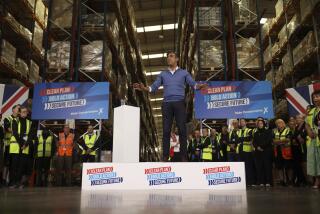In Britain, your economic fate increasingly hinges on where you started in life

Reporting from London â For generations, Peter Coglinâs family made its living from the sea.
Nobody dreamed of spending a year abroad in France or moving to Germany to work in finance. Children stayed on the southern coast of England and fished.
But time has been running out on the family tradition.
Under European Union rules aimed at preventing over-fishing, 59-year-old Coglin routinely has been tossing some of his catch overboard, losing income and watching other fishermen go out of business. At his urging, one of his sons became a bricklayer.
Coglin and every fisherman he knew voted last month to leave the EU in the hopes that Brexit would free them from the quotas, he said.

Stirring his afternoon tea at a fishermanâs club, his back turned to the English Channel and to France, he made his best case for restoring control of British waters to Britain: âIf we do, then our children and our grandchildren will be back at sea.â
The Leave movement owes its narrow victory â with 52% of the vote â in large part to citizens like Coglin who believe their economic prospects have stalled out in a digitized, globalized world.
âThe Leave campaign drew support from people in former industrial zones or seaside towns, who felt their economic opportunities much diminished,â says Ralph Scott of the think tank Demos in London. âPeople who felt left behind by globalization, both socially and economically, didnât think they had much to lose by voting Leave.â
Their sense of despair underscores one of the biggest ironies of globalization in Britain: If youâre young, your economic fate increasingly hinges on where you started in life.
Compared with the United States, Scandinavia and most of Western Europe, Britain has the strongest correlation between a parentâs income and what their children can expect to earn, according to data from the Organization for Economic Cooperation and Development.
Less capable children from affluent homes are 35% more likely to become high earners than poor but bright children, the governmentâs Social Mobility and Child Poverty Commission found recently. Young, poor Britons have less chance of becoming professionals than their fathers or grandfathers did, it concluded in its most recent annual report, which highlighted a growing social divide by income and class.
âMoney speaks more than ever in a way that is economically inefficient and socially unfair,â it said.
As Britain moved from a manufacturing to a services-based economy, families that traditionally counted on jobs in coal, steel or farming watched their children relegated to dead-end jobs.
A House of Lords committee reported this year that the country is failing to invest enough in young adults who do not pursue higher education â men like 20-year-old Daniel Morton, who voted to leave the EU.
He said he wants to be a tree surgeon because the job is âoutdoors and involves working with your hands.â But he lacks the experience needed to get hired and has been turned down even when he applies for unpaid work experience, he said.
Morton, who lives in low-income housing in Brighton, said he would like to travel in Europe. âBut that would take money,â he shrugged.
His father, 57-year-old Guy Morton, is also unemployed. He used to work in a nursing home but now hopes to drive a truck for a supermarket, he said.
He said he has long felt excluded from democracy, that voting was just an exercise in making ordinary people feel included in decisions that were already made by the rich and powerful. He was skeptical of the Brexit referendum too but still encouraged his children to vote Leave.
âEven if youâve never voted in any other votes,â he said he told them, âthis is really important. Go out and vote.â
Their voices were heard clearly this time.
The immediate fallout from the vote is in some sense economic justice for the disenfranchised, as markets crashed and the gap between rich and poor closed slightly, at least temporarily.
âThe fall in house prices and stocks and shares means that itâs the rich who are currently hurting the worst,â said Danny Dorling, a professor of social geography at the University of Oxford. âIf you donât have a car and if you donât go abroad for your holidays, youâre less affected by the post-Brexit chaos.â
The result was also revolt against the metropolitan elites and nearly everything they stood for.
Those who voted to leave tend to have negative views of the Internet, multiculturalism, feminism, the green movement, globalization and immigration, according to a survey of 12,000 people conducted the day of the referendum by a polling organization run by Lord Michael Ashcroft.
Britons who voted to remain tend to be the affluent, young and educated who embrace those things. They are concentrated in London, an international financial center whose economy has roared away from the rest of the country.

If not globalizationâs winners, they at least aspire to a job with benefits, a mortgage and the freedom to travel and work in Paris or Ibiza.
They include Rebecca Bleach, a 26-year-old Oxford University graduate who lives in the affluent Sussex town of Lewes.
She has watched her college friends ride the wave of Britainâs globalization, whether working abroad in Europe or in Londonâs international organizations or law firms.
With plans to start training this fall as a secondary school teacher, she never coveted one of those jobs. But she was mourning Brexit because the divisions it exposed seem so difficult to bridge.
âThereâs got to be dialogue â and a sympathetic response to the level of disenfranchisement that 52% of the population feel,â she said.
To some educated young professionals like Bleach, England has become a place they no longer want to live.
âWhere shall we move to?â her girlfriend asked her after the vote, joking that maybe it was time to leave.
Bleach replied: âWeâre moving to Hull.â The city in northern England voted heavily to leave the EU, an unsurprising result as it had been hit hard by post-industrial decline. She wasnât serious, but her point was made: The nation had essentially become two nations.
Her girlfriend hung up on her.
Power is a special correspondent.
ALSO
âBrexitâ raises fears of global currency wars
This British steel town got millions from the EU, but voted to leave anyway
Divided over immigration, one of Britainâs most diverse cities voted for âBrexitâ
More to Read
Sign up for Essential California
The most important California stories and recommendations in your inbox every morning.
You may occasionally receive promotional content from the Los Angeles Times.










